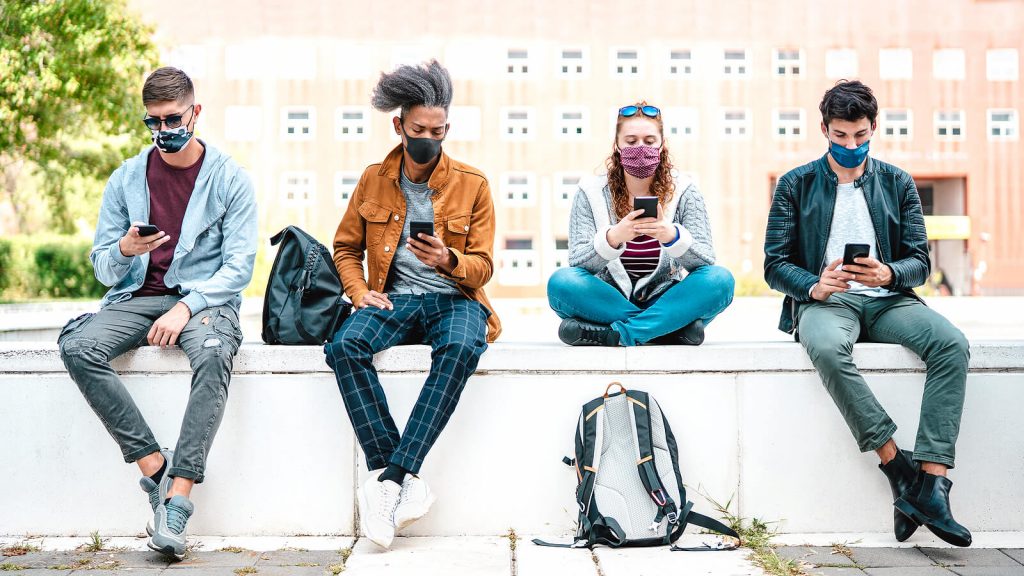About this post: Finding inclusive therapists in New York City can be difficult, especially for those from Black, BIPOC, or LGBTQIA*+ communities. Here, Dr. Tejal Kaur, the founder of our New York City therapy practice, shares some tips on finding an inclusive therapist in NYC and on what to do if you find your therapist is not inclusive.

As a woman of color, albeit one who has benefitted from much privilege through other aspects of my identities,
I’ve not been immune to the mental health impacts of systemic racism. In fact, I’ve experienced these impacts personally and also vicariously through my clients’ lived experiences. I’ve also experienced how holding space for identity, how acknowledging and incorporating micro-and macro-aggressions, how validating trauma can all begin to shift a person’s mental health trajectory.
Unfortunately, I’ve also heard many horror stories from friends, clients, and colleagues about therapy sessions where the client felt gaslighted, felt their identities unseen, and felt misplaced by the therapist in a “normative,” neurotypical world where only two genders existed and where white hegemony ruled.
In the vast sea of therapists in New York City, how do you then find an inclusive therapist who creates space for your intersectional identities? And if you already have a therapist who you feel has been invalidating, what are your options going forward? Here, I’ll share some tips on both finding an inclusive therapist and also what you can do if you find your current therapist isn’t very inclusive.
Interviewing to find an inclusive therapist in New York City
Most therapists will offer a free 15-minute phone consultation. For instance, our office tries to match you with the right therapist but then can also set up a free intro call so you can get a sense of whether the therapist may be inclusive to your needs so that you can go into your first session more informed.
 Here are some examples of questions you can ask before moving forward with a potential therapist:
Here are some examples of questions you can ask before moving forward with a potential therapist:
- How do you define intersectionality and how does it affect your work with clients?
- What is your experience using gender-neutral pronouns?
- Could you describe your experience working with <insert your identity here> clients?
- Do you have specific training in working with <insert your identity here> clients?
- Could you describe your experience with knowing the safety risks, microaggressions, and considerations related to being <insert your identity here>?
- What examples are you aware of about stereotypes of <insert your identity here> that a therapist could say that might lead to trauma or that might be a microaggression?
- I’d like to feel like I don’t need to educate my therapist on matters regarding my identity as <insert your identity here>. How knowledgeable are you about <insert your identity here>?
- What is your position on how intergenerational trauma relates to racism?
- How do you use a trauma-informed approach with clients from <insert your identity here> community?
- How does your practice apply an anti-racist lens to your work?
Options if your therapist isn’t inclusive
What if you already have a therapist but have felt uncomfortable in therapy when you find you have to educate your therapist, field microaggressions, or feel your voice is silenced or unheard on trauma relating to your identity? Below, I list a few options for moving forward.
 First, if you generally feel you have an open relationship with your therapist, you can bring up what you’re noticing. A good therapist will be able to hear what you’re saying and explore it with you. If your therapist can take your input and integrate it into the work without burdening you with the emotional labor of educating them, you may feel better about moving forward.
First, if you generally feel you have an open relationship with your therapist, you can bring up what you’re noticing. A good therapist will be able to hear what you’re saying and explore it with you. If your therapist can take your input and integrate it into the work without burdening you with the emotional labor of educating them, you may feel better about moving forward.
If you either don’t feel comfortable bringing it up or feel unheard when you do, you can also start looking for another therapist. A therapist doesn’t need to be the person you work with “forever.” Sometimes some therapists are the right fit in certain areas of your life and do good work with you in those aspects, but maybe it requires a change of therapists to work on other areas. Many people meet with multiple therapists over the course of their treatment, and also many people have to meet with many therapists until they find the right fit. Don’t give up though! The process may be difficult at times, but when you do find the right inclusive therapist, it’ll be worth it.
While this is not an exhaustive list of the ways to find inclusive therapists in New York City, I hope it’ll be a helpful start to your mental health journey. Our practice can also set you up with one of our inclusive therapists, keeping in mind your distinct identities. We want you to find the right therapist for you, so if we aren’t the right fit, we’ll work with you to help you find someone outside of our practice. Taking care of your mental health is a big step as well as a huge investment, and we believe it’s important to support you in that process, whether it’s in our practice or elsewhere.
